How Studying Abroad Changed Me For the Better
I stayed in Thagoona, Queensland, Australia from July 9th to September 17th.
There were few buildings around my host family’s house, but there were many animals. It was a place that was filled with nature. It was sunny almost every day. Even though it was always sunny, it did happen to rain quite frequently during the night and it became sunny by morning. It was about 4 °C in the morning and it was about 15 °C during the daytime from early July to middle August. After that it was about 15 °C in the morning and it was about 30 °C during the daytime. So, it was a very comfortable place to stay at.
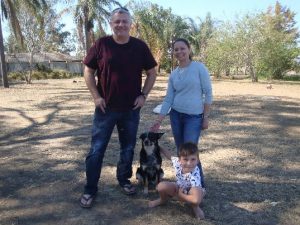
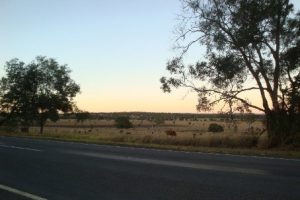
My host high school was Western Moreton Anglican College. It was a coeducation private school that follows the Anglican Church system. They offer consistent education from 5 to 18 years old and have about 1,400 students. There were about 30 people in one class. Just like the world of Harry Potter, students are filed into different houses and we behaved as a member of our assigned house. The campus had 38 hectares and was full of nature. I soon discovered many differences between my host school and my Japanese school. For example, the teachers didn’t get angry if the students suddenly stood up and walked out of the classroom, listened to music with their hand-held devices, watched animated cartoons, sat or lay down on the floor during the classes. Also, we had to put our bags outside of the classroom. In addition, I was surprised there was morning tea and could have some snacks or fruits.

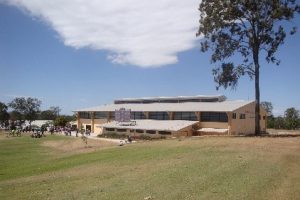
I had 5 63-minute classes every day from 8:25 to 15:00. We had morning tea and lunchtime during the intervals.
| Period 1 8:25-9:28 |
Period 2 9:33-10:36 |
Period 3 11:02-12:04 |
Period 4 12:09-13:12 |
Period 5 13:57-15:00 |
|
|---|---|---|---|---|---|
| Monday A | HSP | HSP(Science) | Mathematics B | English | HSP(ICT) |
| Tuesday A | HSP | Mathematics B | Chapel | HSP | English |
| Wednesday A | HSP | English | RVE | HSP(English) | HPE |
| Thursday A | HSP(English) | HPE | HSP(Maths) | Mathematics B | Japanese |
| Friday A | HSP | HSP(Science) | English | Japanese | Mathematics B |
| Monday B | HSP | Mathematics B | HSP(English) | English | HSP |
| Tuesday B | HPE | Mathematics B | Chapel | Japanese | HSP(English) |
| Wednesday B | HSP | English | HSP | RVE | HSP |
| Thursday B | HPE | Mathematics B | HSP(Maths) | HSP | Japanese |
| Friday B | English | Japanese | HSP | HSP | HSP(Maths) |
HSP was a class only offered for foreign exchange students. In this class I could ask for help to do my homework that I received from other classes. Teachers knew what homework I had and they helped me a lot, so I thanked them very much. I studied “DIVERGENT” in English class. We borrowed the book “DIVERGENT” from the library as a textbook, which I thought was very different from the way we do it in Japan. In its exam we wrote a 500-word essay about the plot, camera angle and background of the book. Also during that class, I learned the differences between British English and American English. I studied quadratic functions in math class. I was puzzled because in Japan, we solve some kinds of math problems differently, for example the way we position the parentheses is different. In Japanese class I practiced all kinds of easy to understand games and watched Japanese movies and variety shows. I was happy that I could teach Japanese to the local students and managed to study English at the same time too. In HPE (Health and P.E.) class I studied about illegal drugs for about the first half. The latter half of that we learned how to dance the waltz. We, both boys and girls, danced together and I enjoyed it because they taught me kindly and also they danced quite well. In the chapel class I listened to stories told by teachers, sang songs and prayed.
Assignments were very difficult. The math assignment sheets were filled with long, confusing questions in English that I struggled to understand and also I had to make various kinds of graphs and figures. When I made a graph, I would use a software called Graphmatica. It was the first time that I had to use it and it was problematic, but I was glad that I could study it. In HPE’s assignment I had to write an essay of more than 800 words about the reason why I make Power Points.
I enjoyed math class very much because I could understand the numbers even without being fluent in English. But I didn’t like English class because they were very different from English classes in Japan. Even though I had taken English classes before in Japan, I still struggled a bit with the English I had to learn at my host school because students there were all fluent in English!
I went to Brisbane, Sea World and to some churches during the school trip. Also, there were sports day, fire drill and “R U OK? Day” in the school. Year 12 was the only students that did the sports day and I just sent cheers to them. During sports day Year 12 did relay, carried heavy balls, flied with bar and did broad jumping. Some of the students even did body paint or wore costumes, which surprised me because in Japan our sports days are conducted differently. The way of doing the fire drill was also different in Japan too. The teachers didn’t get angry if we talked to each other during the fire drill, while in Japan we have to stay dead silent. Though the teachers did roll call, they weren’t at all concerned if someone wasn’t there. In Japan, the teachers would be freaking out if they had a missing student. If they do end up finding the student, that student usually gets in trouble. R U OK? Day was like Taiiku-no-hi in Japan and we spent the day playing around and had a good time.
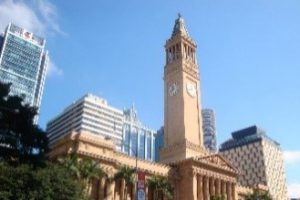
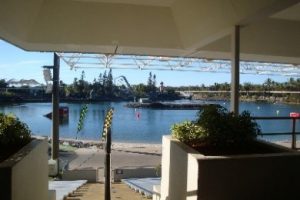
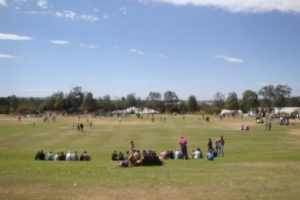
Positive aspects of school life:
At my host school they used computers when they took classes or did their homework, and they used credit cards when they paid money. In addition, messages were always told by email because there were no morning assembly or closing assembly. I liked that because it was easy to find out everything.
Negative aspect of school life:
The students didn’t clean up after themselves. In Japan after the closing assembly is over, we must clean up the classroom, the stairways and the bathrooms by ourselves.
My host family had three members:
My host mother, host father and host brother. My host mother was a marketing manager. She was kind and spoke English slowly, so I could understand her well. Also, I could relax because she always smiled. My host father was a government official. He always told jokes and he was funny, but sometimes he was strict. My host brother was 9 years old and Year 3. He attended my school. He liked playing games very much. I was happy that he relied on me. Their site was very big and it had 10 acres. They have a dog and two horses.
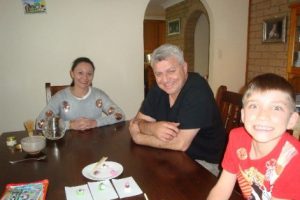
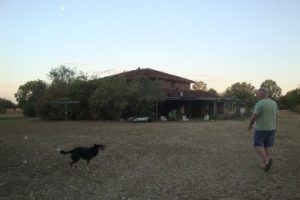
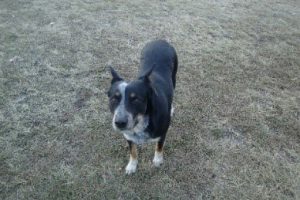
I played games with my host brother and sometimes went shopping after school with my host family. I did a lot of things on holidays, such as going to my host father’s friend’s house, visiting the world’s largest koala sanctuary called LONE PINE KOALA SANCTUARY and held a koala in my arm, riding on host family’s horses, going to stay at the host mother’s parents’ house, educating people about the tea ceremony, going to the Gold Coast and playing there, going to watch a football game of the host brother’s, visiting a national park, going strawberry hunting, and climbing the nature park with my host mother’s brother’s family.
I think that the relationship I had with my host family was very good. I was glad that my host brother said, “You are my real sister,” and he was pleased. Thanks to him, I had a really good time. The distance from my house to school was luckily closer than it was for other students. It only took about 10 minutes by car to get to school.
It took about one week for me to get used to Australian life. I was not hungry and I wasn’t able to eat much for one week. I didn’t become homesick because the period was short, but I did find myself sometimes wanting to drink miso soup and green tea.
I found that I had some difficulties using English in my everyday life. Of course, it was very difficult to speak in English. When I somehow got used to it, I slowly became capable of understanding what they said, but it was still difficult for me to make sentences and reply to them immediately. I realized that I didn’t have enough vocabulary. In addition, I learned American English in Japan, but it is British English that they use in Australia. They sometimes used different words or spelling from what I learned in Japan.
Australian food was very good. The breakfast was oftentimes either bread or cereal. I had sandwiches for lunch and for dinner we had pasta, pizza, Kentucky fried chicken, hungry Jacks, fish and chips, and so on. My host family loved to have chicken. There were also many sushi bars and I sometimes went there with my host family.
- ・Breakfast

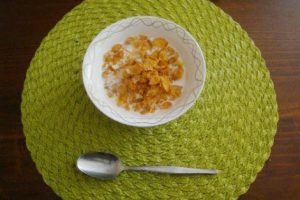
・Dinner

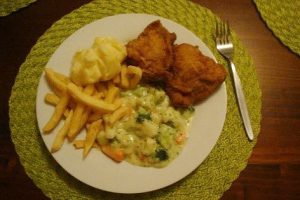
Similarities between Japanese and Australian culture:
We both have Mother’s Day and Father’s Day. In addition, both Japan and Australia are surrounded by sea and have abundant marine resources.
Differences between Japanese and Australian culture:
Most Australians go to bed early, commonly sit down on the table and they suffer from a water shortage. I felt that their characters were different too. I thought that Australian people were spirited, and were carefree, probably because they are not too busy like Japanese and make time for themselves. In addition, they are assertive because almost all students raise their hands and speak at school. In Japan it’s a little different. We listen and take notes as the teacher talks during the class and if we have some questions, we often ask after the class finishes.
I wanted to be active enough to speak from myself, which was very challenging for me, and I tried to tell my host family what I did at school. In this way I could feel like being a member of my host family and I really enjoyed talking with them. What I thought I failed was that I could not explain the backgrounds of my souvenirs from Japan or other things about Japan. When I encountered this problem, I searched on the Internet, but I thought I should have studied or searched well in Japan.
I talked to my host family and friends about my hometown and Kobe, daily life and travels with my family, showing some pictures, about tea ceremony club, which I belonged to when I was in junior high school, and also about origami. My host family asked me with curiosity what jobs we have in my town, which river is the longest in Japan, how much it costs to get on a bullet train and how fast it is, and so on.
Before I went to Australia, I was just wondering what it would be like to live in a foreign country, but I have found out that there are many people with different opinions even if we are all humans, and also there are many differences in cultures. A culture of a country is a culture of its own and there is no good or bad. I think we can make our world better by introducing what each person is interested in.
I think I became to be able to talk positively. In fact, some teachers and my friends told me that I became talkative or became to tell even jokes and I felt very glad with it.
In the present society, global human resources are required. What we need to have is not only communication skills, but also a skill to speak his or her own opinion positively.
I can contribute to Ryukoku by telling this experience of mine to my juniors who will go abroad or who haven’t really made their mind to go. I can tell them the wonderfulness of studying abroad and what they should prepare before they go.
I exchanged some emails with my host family before I left Japan and I could know what they like or what they are interested in. Then I enjoyed choosing souvenirs for them and also I became looking forward to seeing them more and more, so I think it is very good to contact to your host family before you go. Some advices are also written in a handbook the management company in charge of you would give to you, and I really recommend reading it.
Among those you should prepare before you go, what seem not really necessary but actually necessary are sandals, a calculator, and a paper dictionary. I sometimes went to the beach even during the cold season, so I recommend you take ones if you stay close to the sea. A calculator would be useful not only for rate calculation but also for math classes. In math classes at my host school, we sometimes had to calculate square roots, so a calculator that can calculate them is better. An electric dictionary is very useful because you can look up quickly and very helpful during conversation, but you may also need a paper dictionary because during our English exam, we could only use paper dictionaries, but not smartphones or electric dictionaries.
Before you go, you should practice how to explain your souvenirs and how to introduce Japan. Searching for places you want to visit or for dishes you want to eat may also be helpful because your host family would ask you what you want to do.
Improvement of English ability is important, but it is also very important to know the difference between different cultures, and I’d like you to enjoy the difference. Some host families may be too busy working to take you around, but please visit many places with local friends instead. Do your best and have fun!

 上に戻る
上に戻る